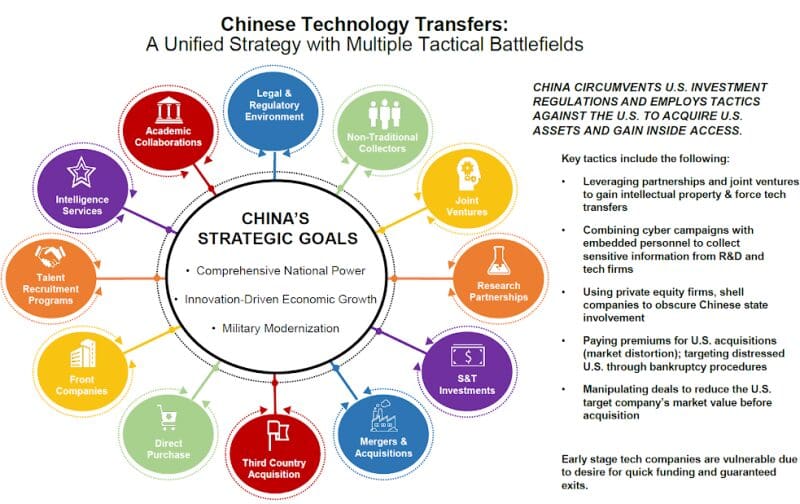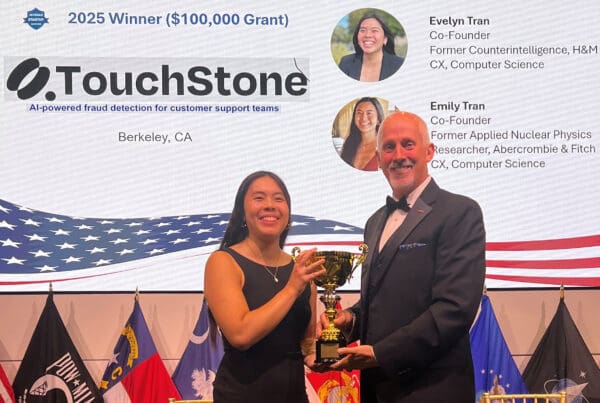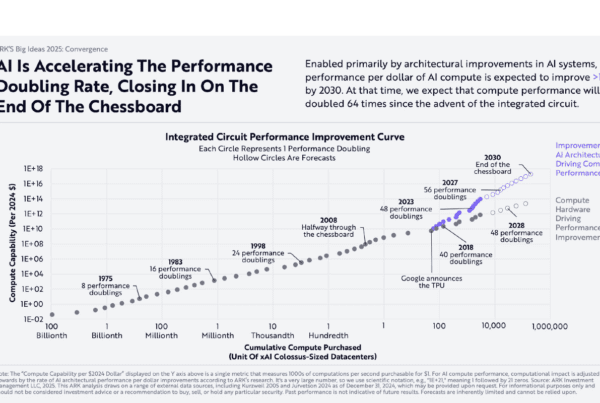It’s no surprise that foreign investors play an active role in the US private capital market. However, their presence raises the question of whether nation-state actors can use their investment to influence innovation, access sensitive data, and ultimately threaten national security. Increasingly, the answer points toward yes.
For example, in the past decade, Chinese investors have secured limited partnership stakes of at least $7.4 billion in U.S.-based funds — a low estimate, according to the Foundation for the Defense of Democracies (FDD). The US Department of Defense acknowledged the risk late last year with its Office of Strategic Capital launch. “America’s strategic competitors are working to influence US technological innovation to their advantage,” said Heidi Shyu, the Under Secretary of Defense for Research and Engineering.
As technology investors, GPs can — and should — do more to vet limited partners, with the aim of preventing undue access to innovation and data from our adversaries. Institutional investors who invest in funds and GPs also have a responsibility to understand more about the other Limited Partner investors in the fund(s). And we can all help drive domestic investment toward dual-use startups and support founders developing products that further our national security.

SOURCE: Department of Defense CFIUS
Overt influence and more
The FDD recently outlined the risk of inbound LP investments by Chinese investors into U.S.-based VC and PE firms. According to the FDD, the Committee on Foreign Investment in the United States (CFIUS) doesn’t review the “sub-surface space of limited partnership stakes in US.”
The report says, that “as a result, they provide Chinese entities with access to private equity and venture capital funds that back high-growth technology companies. In addition to access to technology and innovation, these investments also offer tremendous influence”. China (and other adversaries) might use private investments to their advantage in multiple ways, including:
- As limited partners in PE funds, they may receive strategically valuable information about portfolio companies and fund performance that includes economic and national security intelligence.
- They may also gain access to R&D and innovation via VC investments that they can use to accelerate their national security technology and strategic aspects of their economy.
- PE and VC connections can yield outsized political influence that foreign investors may use to bend US policies in their favor.
“China poses a novel strategic threat. The role of private market capital in today’s security environment — and China’s strategic approach to competing with the United States therein — creates environmental conditions different from America’s last great power competition, the Cold War.”
-The Foundation for Defense of Democracies, Fall 2022
A call for more LP diligence
We understand VC firms’ urgency around raising and deploying capital as quickly and efficiently as possible. But with the increased activity of foreign LPs, adding another layer of diligence can prevent nation-state actors, sanctioned oligarchs, and state sponsors of terrorism from infiltrating the LP universe.
We recommend the following:
1. Before investing in a VC fund, institutional LPs should ask for:
- Verification of the identity and origins of every LP in the fund
- Assurance that the fund is in strict compliance with US CFIUS, KYC, and AML rules and guidelines.
2. The ILPA, in collaboration with their institutional LP investors, should provide guidance and checklists regarding how to internally and externally diligence the LP base within a fund target. Allocators need just as much help as individual/family office investors, given how many fund managers they try to manage with very lean resources.
3. That the NVCA, working with firms like TFX, Shield Capital, and others, develops standardized investment representations and warranties for startups and VCs to guard against adversaries investing in startups. A working group can quickly be formed, connected to the right keyholders, and start providing guidance and best practices. We are NVCA members and would be happy to support this group.
At TFX, we’ve been asking some of these questions and applying these standards to our investors. For example, we currently accept only US citizens and/or US-domiciled institutions as investors. We also provide assurances to our portfolio companies that our “cap table” is clean, and we can make the same promise to co-investors. One of our portfolio companies Sayari can add new insights when verifying LPs.
The US “must also pay attention to how our adversaries can use private investments in their companies to develop the most sensitive technologies, to fuel their drive for a military and national security edge.”
-Lisa Monaco, US Deputy Attorney General, Feb 2023
That saying about a good offense
The additional due diligence regarding LPs helps us create a better defense against outside players that are using startup investing for nefarious purposes. However, it’s just one part of the equation. The other is funneling more capital and energy toward startups that may have a national security application.
The US Department of Defense thinks the same, as evidenced by the $130 billion the agency has allocated toward R&D in its most recent annual budget (this includes a large investment in AI efforts). Forward thinkers like Jen Snow, Hondo Geurts, and others led the way with the establishment of SOFWERX in 2015 which opened the door for even more external-facing partnerships between software and hardware companies and the DOD. These include AFWERX, AF Ventures, DIU, AFC, AAL, NavalX , NSIN, MIU, and many more. And force-multiplier teams at BMNT, Silicon Valley Defense Group, and others are actively supporting these innovation initiatives.
Momentum is building. The newly launched Department of Defense Office of Strategic Capital adds more fuel to the growing emphasis on private partnerships for developing defense technology. Now is the time for VC firms to accelerate their support of these national security-focused initiatives. Some are already there. In fact, in the past two years, two funds launched with that exact focus: Shield Capital and America’s Frontier Fund. And more VC funds are becoming more open to startups who provide solutions for our national security and for private sector companies (i.e. “dual-use”).
As U.S.-based VCs, we enjoy the liberty, safety, and stability of living in the US. That security is not guaranteed, and only a small slice of our population stands watch every day. We must play our part by thoroughly vetting our LPs, investing in defense or “dual-use” tech startups, and leveraging federal and DOD initiatives that provide capital and opportunities to startups that promise to further our national security.
If you’d like to learn more about what TFX Capital is doing in national security investing, then please reach out.



